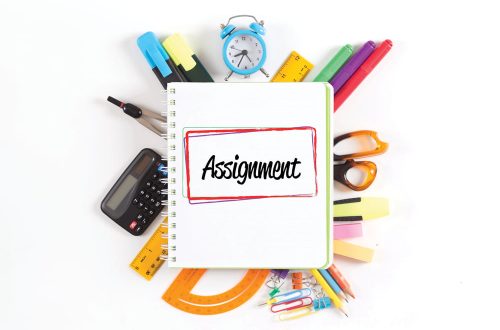
How To Write A Mentoring Assignment
When you are assigned a mentoring project, it is important to take the time to understand the assignment and to plan your approach. The following steps will help you to write a mentoring assignment that meets the expectations of your instructor.
First, read the assignment carefully and make sure that you understand the requirements. If you have any questions, ask your instructor for clarification.
Next, develop a plan for completing the assignment. This plan should include a timeline and a list of the resources that you will need.
Then, begin writing the assignment. Be sure to stay on topic and to follow the instructions carefully.
Finally, proofread and revise your work. Make sure that it is clear and error-free.
How do you structure a mentoring session?
Many people find themselves in a position where they would like to mentor someone, but they may not know how to structure a mentoring session. This can be a daunting task, but with a few simple tips, it can be a breeze.
The first step is to determine the goals of the mentoring session. What do you hope to achieve? This can vary depending on the situation, but some general goals might be to provide support and guidance, offer feedback and advice, or help the mentee develop new skills.
Once you have determined the goals of the session, it’s time to plan out how you will achieve them. This might involve discussing the mentee’s current situation and their goals, and then outlining a plan of action. It’s important to be flexible and to adapt as needed, but having a general plan can be helpful.
The final step is to actually carry out the mentoring session. This can involve talking to the mentee, providing feedback, and offering advice. It’s important to be supportive and positive, and to focus on helping the mentee achieve their goals.
With these simple tips, you can structure a mentoring session that will help the mentee reach their goals.
How do you write a mentoring experience?
Mentoring can be one of the most rewarding experiences you’ll ever have. It can also be one of the most challenging. If you’re thinking about becoming a mentor, or if you’ve been asked to be a mentor, there are a few things you should know.
The most important thing to remember is that, as a mentor, you’re not the expert. You’re there to help your mentee grow and learn. You should be a resource for your mentee, but you should also encourage them to find their own answers.
When you’re working with a mentee, it’s important to establish trust. They need to trust that you won’t judge them, and they need to trust that you have their best interests at heart.
Once you’ve established trust, the next step is to develop a plan. What do your mentee want to achieve? What do you want them to achieve? How can you help them reach their goals?
Your mentoring relationship should be a partnership. You should both be invested in the mentee’s success.
It’s also important to be flexible. Things may not always go according to plan, and that’s okay. Be prepared to adapt to the situation.
Finally, be patient. It may take time for your mentee to reach their goals. Don’t give up on them.
If you can keep these things in mind, you’ll be well on your way to becoming a successful mentor.
What are some examples of mentoring activities?
Mentoring activities can vary depending on the mentor and the mentee, but often include offering guidance, support, and feedback on specific issues or tasks. Mentoring can also help to develop relationships that can provide access to important resources or opportunities. Some common mentoring activities include:
1. Providing guidance and feedback on professional or academic goals.
2. Offering advice on how to navigate through challenging situations or environments.
3. Helping to build self-confidence and self-esteem.
4. Facilitating access to important resources or opportunities.
5. Encouraging networking and relationship-building.
6. Offering support and encouragement during difficult times.
7. Sharing knowledge and experience.
8. Providing critical feedback and honest observations.
9. Encouraging growth and development.
10. Acting as a role model.
What are the key principles of mentoring?
Mentoring is a process that helps someone else learn and grow. The key principles of mentoring are:
1. Establish trust. The first step in mentoring is to build a relationship of trust. This can be done by being open and honest, and by being respectful of the other person.
2. Be a role model. A good mentor is a role model for the person they are mentoring. They set a good example and help the other person learn by example.
3. Listen and be supportive. A good mentor listens to their mentee and offers support. They help the other person to grow and learn in a supportive environment.
4. Encourage and challenge. A good mentor encourages their mentee to try new things, but also challenges them to reach their full potential.
5. Respect the other person’s independence. A good mentor respects the other person’s independence and allows them to make their own decisions.
Mentoring is a great way to help someone else learn and grow. By following these key principles, you can be a good mentor and help someone else reach their full potential.
What are the four pillars of mentoring?
Mentoring is a process of professional and personal development that has been used by many successful people throughout history. The four pillars of mentoring are trust, respect, candor, and shared experience.
The first pillar of mentoring is trust. In order for a mentoring relationship to be successful, both parties must be able to trust each other. This trust can be built over time through consistent communication and honesty.
The second pillar of mentoring is respect. Mentors must respect their mentees and vice versa. This means that both parties must be willing to listen to each other and be open to feedback.
The third pillar of mentoring is candor. Mentors must be candid with their mentees, and vice versa. This means that both parties must be willing to give and receive constructive feedback.
The fourth and final pillar of mentoring is shared experience. Mentors and mentees must be willing to learn from each other. This can be done by sharing stories, lessons learned, and advice.
What are the 8 good qualities of a mentor?
A mentor can be a great asset to someone’s professional and personal development. A mentor can offer guidance, support, and advice when needed. They can help you grow your skills and achieve your goals. Here are 8 good qualities of a mentor:
1. Experience and Knowledge: A mentor should have a lot of experience and knowledge in the field they are mentoring in. They should be able to share their knowledge and help you grow as a professional.
2. Objectivity: A mentor should be able to give honest and objective feedback. They should be able to point out your strengths and weaknesses, and offer suggestions on how to improve.
3. Support: A mentor should be a supportive person. They should be there to offer encouragement and advice when needed. They should also be a listening ear and be able to offer a shoulder to cry on.
4. Trust: A mentor should be someone you can trust. They should keep your secrets and not share confidential information with others.
5. Guidance: A mentor should be a guide, not a dictator. They should offer guidance and suggestions, but should ultimately let you make your own decisions.
6. Flexibility: A mentor should be flexible and adaptable. They should be able to change with the times and be willing to try new things.
7. Positive Attitude: A mentor should have a positive attitude and be optimistic. They should be able to see the best in people and offer encouragement.
8. Good Communication Skills: A mentor should have good communication skills. They should be able to listen attentively and be able to communicate effectively.
What are the 3 Cs of mentoring?
The 3 Cs of mentoring are communication, clarity, and consistency.
When it comes to communication, mentors need to be clear with their mentees about what they can expect from the relationship. This includes setting expectations for frequency of contact, what will be discussed during meetings, and what the mentor’s role is. It’s also important for mentors to be responsive to their mentees, and to check in regularly to see how they’re doing.
Clarity is another key ingredient for successful mentoring relationships. Mentors need to be clear about their own knowledge and experience, and be able to help their mentees navigate through difficult situations. They should also be able to provide constructive feedback, and help their mentees develop their own problem-solving skills.
Consistency is important for both mentors and mentees. Mentors should be consistent in their approach, and provide support to their mentees on a regular basis. Mentees, meanwhile, should be consistent in their effort to learn and grow, and should show respect for their mentors.
If you’re looking to be a successful mentor, it’s important to keep these three Cs in mind. By communicating clearly and consistently, you’ll be able to create a positive, productive mentoring relationship.
What are the key stages of a mentoring session?
A mentoring session typically follows a set routine, with key stages that help both the mentor and the mentee to get the most out of the experience.
The first stage is usually an introduction, where both the mentor and mentee get to know each other and discuss what they hope to get out of the mentoring relationship. This is followed by a discussion of the mentee’s current situation and goals, which helps the mentor to better understand the mentee’s needs and develop a plan to help them achieve their goals.
Next, the mentor and mentee will work together to implement the plan and track the progress made. This includes regular check-ins to discuss how things are going and make any necessary adjustments. The final stage is usually a review, where both the mentor and mentee reflect on the mentoring relationship and what they have learned from it.
What are the 3 A’s of mentorship?
Mentorship is a relationship in which a more experienced or more knowledgeable person helps to guide a less experienced or less knowledgeable person. The three As of mentorship are:
1. Advocacy: The mentor advocates for the mentee, pushing for them to be given opportunities and resources that will help them grow.
2. Assistance: The mentor provides assistance to the mentee, helping them to navigate through difficult challenges and providing support.
3. Accountability: The mentor holds the mentee accountable, pushing them to reach their goals and grow as individuals.
What should a mentoring plan include?
A mentoring plan should include the expectations of the mentor and mentee, the frequency of meetings, and the goals of the mentoring relationship. The mentor and mentee should also establish a communication plan so that they can easily keep in touch between meetings.
The mentor and mentee should agree on the goals of the mentoring relationship. These goals could include developing the mentee’s skills, providing guidance and support, or increasing the mentee’s networking opportunities.
The frequency of meetings should be based on the needs of the mentee. However, it’s generally recommended that mentors and mentees meet at least once a month.
The mentor and mentee should also agree on the expectations of the mentor. The mentor should expect to provide guidance and support to the mentee, and the mentee should expect to be open and receptive to the mentor’s advice.
The mentor and mentee should also establish a communication plan. This plan should include the ways that they will communicate (e.g. email, phone, Skype), the frequency of communication, and the topics they will discuss.
A mentoring plan can be a valuable tool for ensuring a successful mentoring relationship. By setting expectations and agreeing on goals, the mentor and mentee can work together to achieve their objectives.
How do you run a successful mentoring session?
Running a successful mentoring session takes preparation and organisation. The aim of a mentoring session is to help the mentee to achieve their goals, so it is important to get to know the mentee and their goals before the session begins.
The first step is to create a safe and positive environment for the mentee to share their thoughts and feelings. This can be done by establishing some ground rules at the beginning of the session. It is also important to be respectful of the mentee’s time and to keep sessions on track.
The next step is to help the mentee to set goals. This can be done by asking the mentee what they would like to achieve from the session. Once the goals have been set, the mentor can help the mentee to develop a plan of action to achieve them.
The final step is to provide feedback and support. The mentor can help the mentee to reflect on their progress and give them encouragement to keep going.
How do you put mentoring experience on a resume?
Mentoring experience can be a valuable addition to your resume. It can demonstrate that you have the qualities necessary to be a successful mentor, such as patience, communication skills, and leadership ability. Here are a few tips on how to put mentoring experience on your resume:
1. Start by listing the name of the organization or company where you volunteered as a mentor.
2. Next, list the dates of your volunteer experience.
3. Describe your role as a mentor.
4. talk about the skills you developed as a mentor.
5. Finally, list any awards or recognitions you received for your mentoring work.
Can you give me an example of mentoring?
Mentoring is an important process for both the mentor and the mentee. For the mentor, it can provide an opportunity to share knowledge and skills, and for the mentee, it can provide guidance and support.
Mentoring can take many forms, but typically involves a relationship in which the mentor provides advice and feedback to the mentee. The mentor-mentee relationship is often a close one, and it can be a great way for professionals to learn and grow.
There are many benefits to mentoring, and it can be a great way to develop new skills and knowledge. Mentoring can also help professionals to build relationships and contacts, which can be helpful for networking.
Mentoring can also be a great way to give back to the community. Mentors can help to pass on their knowledge and skills to the next generation, and they can help to support and encourage the development of young professionals.
If you’re interested in becoming a mentor, or if you would like to find a mentor, there are a few things to keep in mind.
First, it’s important to find the right mentor. You should look for someone who is knowledgeable and experienced in the area that you want to learn more about.
It’s also important to find a mentor who is compatible with you. You should feel comfortable talking to your mentor, and you should be able to trust them.
Once you’ve found a mentor, it’s important to make the most of the relationship. You should be prepared to ask questions and to learn as much as you can.
It’s also important to be respectful of your mentor’s time. Make sure to schedule meetings in advance, and be prepared to end the meeting on time.
Mentoring can be a great way to learn and grow professionally. If you’re interested in becoming a mentor, or if you would like to find a mentor, there are a few things to keep in mind.
What is considered mentoring experience?
What is considered mentoring experience?
Mentoring experience is considered to be any interaction that you have had with another person in which you have acted as a mentor or a mentee. This could include providing guidance and support to someone else, or seeking guidance and support from someone else.
Mentoring can be a very valuable experience, and can help you to develop skills such as communication, problem solving, and leadership. It can also help you to build relationships with other people, and to develop your own professional network.
If you are interested in becoming a mentor, or if you would like to find a mentor, there are a few things that you can do to increase your chances of finding a suitable match.
Some tips for finding a mentor include:
1. Try to find someone who is experienced in the field that you are interested in.
2. Try to find someone who is available to meet regularly.
3. Try to find someone who is willing to provide guidance and support.
4. Try to find someone who is willing to be a mentor for a long-term period.
If you are interested in becoming a mentor, there are a few things that you can do to increase your chances of being chosen by a mentee:
1. Make yourself available.
2. Be willing to provide guidance and support.
3. Be willing to meet regularly.
4. Be willing to mentor for a long-term period.
Mentoring can be a very rewarding experience for both the mentor and the mentee. If you are considering becoming a mentor, or if you are looking for a mentor, be sure to do your research and find a mentor who is a good fit for you.
How do you describe mentee experience on a resume?
When it comes to describing mentee experience on a resume, it is important to be clear and concise. Below are a few tips on how to do this effectively:
– Start by describing what the mentorship program was about. This could include the objectives of the program, the type of mentorship you received, and the skills or knowledge you gained.
– Next, outline the specific skills and experiences you gained from the program. This could include things like leadership skills, communication skills, problem-solving skills, or industry-specific knowledge.
– Finally, emphasize how the mentorship program has helped you grow as a professional. Talk about how you have applied the skills and knowledge you gained to your current job or other professional experiences.
When describing mentee experience on a resume, it is important to be clear and concise. By following the tips outlined above, you can effectively highlight the skills and experiences you gained from the program. This will help you stand out from the competition and demonstrate that you are a qualified candidate for any job.
What are examples of mentorship programs?
Mentorship programs can offer a variety of benefits to employees and organizations. They can provide employees with access to experienced professionals who can offer guidance, support, and advice. Mentors can also play a role in developing the next generation of leaders within an organization.
Mentorship programs can be tailored to meet the specific needs of an organization. Some common types of mentorship programs include:
1. Sponsorship Programs – Sponsorship programs pair experienced professionals with junior employees who are seeking to develop their career. Sponsors provide guidance and support to their protégés, and act as mentors and advocates.
2. Reverse Mentorship Programs – Reverse mentorship programs pair younger employees with more experienced employees. The goal of reverse mentorship programs is to help younger employees learn new skills and gain knowledge about the organization.
3. Group Mentorship Programs – Group mentorship programs bring together a group of employees who are seeking mentorship. The group meets on a regular basis to discuss personal and professional goals, and to receive guidance from a mentor.
4. Individual Mentorship Programs – Individual mentorship programs match employees with a mentor who is specifically assigned to them. These programs offer employees one-on-one support and guidance.
Mentorship programs can be a great way for employees to develop their skills and career. They can also help organizations to identify and develop the next generation of leaders.
What are three 3 different types of mentoring?
There are many different types of mentoring, but here are three of the most common:
1. Peer mentoring Peer mentoring usually involves people of the same age or experience level working together. This type of mentoring is often informal, and the mentor and mentee may not have a pre-determined relationship. Peer mentoring can be a great way to learn from someone who is more experienced, and can help build relationships and networks.
2. Sponsor mentoring Sponsor mentoring is a more formal type of mentoring, where the mentor has a vested interest in the mentee’s success. This type of mentoring is often used in the workplace, and the mentor is usually someone in a position of power. Sponsor mentoring can help the mentee learn about new opportunities, develop their skills, and grow their network.
3. Expert mentoring Expert mentoring involves a mentor who is an expert in a particular field or area of interest. This type of mentoring is often used to help the mentee learn new skills or knowledge. Expert mentoring can be very beneficial, as the mentor can provide specific and tailored advice.
How can I make mentoring fun?
Mentoring can be a fun and rewarding experience, but it can also be a lot of work. Here are a few tips on how to make mentoring fun for both you and your mentee.
First, find common ground. It’s important to find something that you both enjoy doing and can talk about. This can help make the mentoring process more enjoyable for both of you.
Second, make time for fun. Mentoring can be a lot of work, but it’s important to take some time to relax and have some fun. This can help keep you energized and motivated.
Third, be creative. Try to come up with fun and interesting activities that you can do together. This can help make the mentoring process more interesting and engaging.
Fourth, be patient. It may take time for your mentee to warm up to you. Be patient and keep doing things that make the mentoring process enjoyable for both of you.
Fifth, be positive. Always be positive and upbeat, even when things get tough. This can help your mentee stay motivated and positive.
Finally, enjoy it! Mentoring can be a lot of work, but it can also be a lot of fun. So enjoy it!
What to do in mentoring sessions?
Mentoring is an important process that can help individuals learn and grow in their careers. If you are a mentor, it’s important to know what to do in mentoring sessions so that you can help your mentee achieve their goals.
One of the most important things to do in mentoring sessions is to listen. Be sure to listen to everything your mentee has to say, and ask questions to clarify any points that are unclear. This will help you understand their goals and the challenges they are facing.
It’s also important to give your mentee feedback and guidance. Offer your advice and opinions, but be sure to let your mentee make their own decisions. This will help them learn and grow from their experiences.
Finally, be supportive. Be there for your mentee when they need you, and offer encouragement when they are struggling. This will help them stay motivated and focused on their goals.




